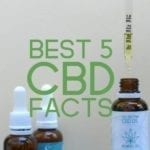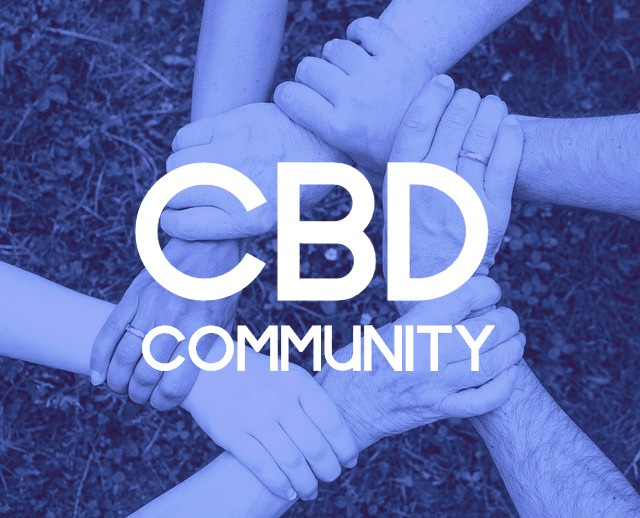Last updated on 13 July 2021
CBD is an acronym for Cannabidiol. A compound constituent found in hemp and cannabis. When the CBD is extracted from the hemp plant it contains negligible or no THC. Because it lacks the intoxicating and addictive effects associated with other cannabis compounds such as Tetrahydrocannabinol (THC), it is legal, sold and used in many countries around the world.
CBD comes in various forms such as CBD oil, Isolate, Crystals, Wax, E-liquids, vapes, gums, paste, and many others. Presently there is an increasing market trend in the demand for CBD and hemp-related consumer goods that include dietary supplements, cosmetics, clothing, accessories, etc and modern innovations are bombarding the Industry.
In recent decades, there has been a push for the legalization of cannabis plant derived CBD products and their introduction into conventional medical treatment.
Thanks to social media that helps to promote better awareness and an encouraging community that is getting evolved to make CBD more understandable to associate with it for promoting better health and sustainability.
Get to know 5 interesting facts about CBD and clarify your understanding.
1. CBD Can Help Alleviate Stress & Anxiety
Excessive and unnecessary anxiety affects over 40 million individuals in the United States alone and is a matter of genuine social health concern. In a study1 concerning the use of cannabidiol (CBD) for anxiety, CBD appears to rise synaptic response in the brain with serotonin levels.
People don’t usually think of stress as desirable but it is a natural and critical adaptive response. Stress can assist in coping with threats to welfare and safety. These responses play a vital role in helping people to recognize and deter possible threats. These are the responses that motivate people into taking action to improve their situation (improve relationships, pay bills, work harder, and so on).
Some individuals are not able to manage these natural responses well. They could become a nuisance and might negatively affect relationships and productivity. They also can result in clinically diagnosable anxiety-related ailments.
A study2 published in 2013 found that treatment with cannabinoids in the wake of some form of traumatic or stressful experience might help to control a subject’s emotional responses. Researchers discovered that cannabinoids could be effective in minimizing stress receptors in the hippocampus – the part of the brain responsible for these emotional responses.
A more recent review3 which was published in 2015 observed that cannabis therapies were also effective in reducing stress and restlessness in military veterans who suffered from Post-Traumatic Stress Disorder.
Bradley E. Alger, scientist and expert in experimental psychology from Harvard, his profound research4 states that the endocannabinoids are a bridge between body and mind, where the immune system and the nervous system interacts with all of the body’s organs. This is a key finding that helps us understand the mechanism and close inter-connectedness between brain activity and physical health.
These studies provide interesting insights into the use of CBD oil in treating stress and anxiety.
2. CBD Can Help Calm Asthma
According to the Centers for disease control and prevention (CDC) 1 in 13 people have Asthma. It is distressing to know some facts that approximately 25 million Americans suffer from Asthma. It is claimed that it has become one of the most common and expensive diseases as it brings down productivity to a great extent and escalates the medical costs of the country.
In recent years, hundreds of medical studies focused on researching the effectiveness of CBD in Asthma treatment have been conducted by several research institutions all over the world.
Generally, studies5 endorse the effectiveness of CBD in the treatment of asthma. They prove that for individuals suffering from Asthma, embracing the idea of using CBD to treat asthma is a step closer to properly managing this disease. The studies were conducted by various professionals, institutes and organizations that support CBD’s effectiveness in handling asthma. This is a clear indication that it is currently one of the safest treatment methods for this condition.
CBD provides a really strong anti-inflammatory agent6. The main reason why CBD can be suitable in treating Asthma is that it is very powerful in managing aggrandized inflammatory responses in the patient’s body.
Interestingly, there is quite a lot of research7 and studies8 on the positive properties of hemp oil to treat asthma symptoms. The intrinsic anti-inflammatory nature of hemp based CBD oils or products immediately responds to the respiratory tract inflammation thereby providing relief.
There is a limited evidence-based study on the use of cannabis for Asthma-related health issues, although a few research studies reveal that CBD may be supportive to reduce inflammation in the airway and help the affected person suffering from asthma or related allergic health conditions to breathe normally. The CIITECH-Hebrew University collaboration hopes to carry this research further to produce CBD-based medications for use in treating asthma and other inflammatory diseases worldwide.
3. CBD Keeps Your Heart Healthy
CBD’s anti-inflammatory and antioxidative properties support in minimizing the risk related to high blood pressure or several heart-related ailments. Cardio vascular-related problems are one of the most important health concerns that one might always need extra care, as well as knowledge to overcome in case one is diagnosed with. Learning and knowing about CBD is always a good practice to help yourself or someone in need.
A 2014 British research9 team found that the results of some animal studies applied to human heart conditions. These studies have demonstrated that treatment with cannabis oil may prevent some cardiovascular diseases, including atherosclerosis, heart attacks, and strokes.
The outcomes and developments in CBD science from the annual International Cannabinoid Research Society (ICRS) symposium, that was held in 2019 revealed interesting insights to the medical industry to follow up as it had emphasized on CBD’s versatile therapeutic potential. For example, studies and surveys that were part of this symposium conducted preclinical research to infer the anti-inflammatory and neuroprotective effects of CBDA ( Cannabidiolic acid) which is the raw version of CBD found in the cannabis plant that could be used to treat strokes.
On the other hand, any medication whether plant-based or allopathic comes with certain side effects. Before starting to use a particular CBD product, it is recommended that you get familiar with their content, as they differ widely. Consulting with an expert while taking CBD based products would always be a good discipline to follow.
4. CBD Can Help Control Seizures
The conventional medical industry spent several years of research and study to incorporate CBD products for health care. The most widespread usage that medical practitioners supported the adoption of CBD, is for treating neurological conditions. The US FDA (Food and Drug Administration) legally approved oral administration of CBD as a prescription for treating Seizures or Epilepsy both in Infants and adults.
Considering this condition alone, CBD products are a boon to mankind. The first plant-based drug derived from the cannabis plant to be approved and marketed is the CBD. Cannabidiol has shown10 to have anticonvulsant properties. They play a significant role in minimizing the number of related symptoms and seizures.
Research11 reveals that in conditions of epilepsy, CBD based products especially the oil form have been showing promising results in patients.
Further research12 says CBD showed encouraging results in reduced recurrence in convulsive seizures in patients with Dravet syndrome and Lennox-Gastaut syndrome. The availability of such kind of evidence-based studies about the use of CBD supporting seizure control in patients is motivating and there is a need for more such studies, as the Industry requires empirical sound data that can complement advocacy of therapeutic use of cannabis.
Related article: CBD for Epilepsy
Added to this, issues around government regulations and legalities on hemp, CBD, or cannabis-related products that are still rigid in many countries which is an obstacle to both patients and doctors who are seeking them for treating health issues rather than entertainment use.
It is noteworthy to mention that CBD can be astonishingly beneficial for seizures in pets as well, especially for dogs and cats. They too, like humans, have an endocannabinoid system that responds to CBD and can be a solution to treat seizures in pets. Remember the golden rule to seek advice from your veterinarian.
Related article: CBD for Pets
5. CBD May Help Slow Down Cancer
Cancer has been one of the most serious health conditions plaguing humans and animals for decades. Thankfully, several alternative treatments and supplements can help counter this condition. Advanced medical technology and continuous research efforts are always been undertaken to handle this efficiently. According to studies13, CBD for cancer treatment can be quite successful in alleviating symptoms (without any uncomfortable side effects) that one can count on.
There is a vast scope for extensive research and scientific study on CBD usage for cancer, but small pieces of evidence have shown encouraging results in managing symptoms of cancer with CBD.
The National Cancer Institute reviews several studies that show CBD may have a protective effect against cancer, as it has the potential to reduce the rate of spread of cancer cells in the body. This includes several studies1415 in progress for treating various types of cancers.
Both Cancer and its treatment can be painful, CBD comes here as a relief to handle pain management16. It directly acts on cb2 receptors to disperse inflammation and on cb1 receptors for reducing pressure and pain from the nerves. Alongside some general remedies for chronic pain management, nausea17, appetite management, etc.
Cannabinoids like tetrahydrocannabinol, endocannabinoids, and synthetic agonists, as well as endocannabinoid transport, have shown anti-tumorigenic effects18. Evidence has pointed towards cannabinoids having pro-apoptotic (Apoptosis is the process of cell death that occurs in multicellular organisms). This means that according to studies, cannabinoids have promoted the death of cancer cells14.
Cannabinoids also have anti-proliferative properties (this means that cannabinoids also stop the growth and spread of cancer cells.) These effects fight cell migration, invasion, and adhesion19.
More importantly, cancer patients are subject to immense emotional swings due to the nature of the medical condition itself and the continuous painful medical procedures that are carried out during treatment. Stress, failure, loneliness, self-denial, social anxiety, anger, decreased self-morale, depression, etc. are some important aspects to consider to keep up the mental health of a patient. The role of CBD here is that it helps improve the state of the mind more energized, healthy and free.
Conclusion
- Shed inhibitions and mindsets about CBD and initiate to become aware and educated.
- Fear of wrong dosages or lack of awareness about the right quantity is the key concern that one should first address before getting alarmed by quickly skimming through the side effects of CBD.
- It is always a healthy practice to consult an expert and professional advice along with an individual’s medical history before self-medicating on CBD to ensure safe usage and reap the right benefits from use.
- Consumption of other medications along with CBD might also alter the effect of medication.
- Scope for empirical research on specific micro and macro topics related to CBD, its medical values, and therapeutic benefits.
- CBD Industry is gaining importance in Medical Industry, Business, Research, and Science.
References
- Schier, Alexandre Rafael de Mello, et al. “Cannabidiol, a Cannabis sativa constituent, as an anxiolytic drug.” Brazilian Journal of Psychiatry 34 (2012): 104-110. [↩]
- Ganon-Elazar, Eti, and Irit Akirav. “Cannabinoids and traumatic stress modulation of contextual fear extinction and GR expression in the amygdala-hippocampal-prefrontal circuit.” Psychoneuroendocrinology 38.9 (2013): 1675-1687. [↩]
- Betthauser, Kevin, Jeffrey Pilz, and Laura E. Vollmer. “Use and effects of cannabinoids in military veterans with posttraumatic stress disorder.” American Journal of Health-System Pharmacy 72.15 (2015): 1279-1284 [↩]
- Alger, Bradley E. “Getting high on the endocannabinoid system.” Cerebrum: the Dana forum on brain science. Vol. 2013. Dana Foundation, 2013. [↩]
- Pini, Alessandro, et al. “The role of cannabinoids in inflammatory modulation of allergic respiratory disorders, inflammatory pain and ischemic stroke.” Current drug targets 13.7 (2012): 984-993. [↩]
- Xiong, Wei, et al. “Cannabinoids suppress inflammatory and neuropathic pain by targeting α3 glycine receptors.” Journal of Experimental Medicine 209.6 (2012): 1121-1134 [↩]
- Sin, Don D., et al. “What is asthma− COPD overlap syndrome? Towards a consensus definition from a round table discussion.” European Respiratory Journal 48.3 (2016): 664-673. [↩]
- Poulain, Magali, et al. “The effect of obesity on chronic respiratory diseases: pathophysiology and therapeutic strategies.” Canadian Medical Association Journal 174.9 (2006): 1293-1299. [↩]
- Stanley, Christopher P., and Saoirse E. O’Sullivan. “Cyclooxygenase metabolism mediates vasorelaxation to 2-arachidonoylglycerol (2-AG) in human mesenteric arteries.” Pharmacological research 81 (2014): 74-82. [↩]
- Jones, Nicholas A., et al. “Cannabidiol displays antiepileptiform and antiseizure properties in vitro and in vivo.” Journal of Pharmacology and Experimental Therapeutics 332.2 (2010): 569-577. [↩]
- Devinsky, Orrin, et al. „Cannabidiol: pharmacology and potential therapeutic role in epilepsy and other neuropsychiatric disorders.“ Epilepsia 55.6 (2014): 791-802. [↩]
- Porter, Brenda E., and Catherine Jacobson. „Report of a parent survey of cannabidiol-enriched cannabis use in pediatric treatment-resistant epilepsy.“ Epilepsy & Behavior 29.3 (2013): 574-577 [↩]
- Massi, Paola, et al. „Cannabidiol as potential anticancer drug.“ British journal of clinical pharmacology 75.2 (2013): 303-312 [↩]
- Shrivastava, Ashutosh, et al. „Cannabidiol induces programmed cell death in breast cancer cells by coordinating the cross-talk between apoptosis and autophagy.“ Molecular cancer therapeutics 10.7 (2011): 1161-1172 [↩] [↩]
- Yamada, Takahiro, et al. „TRPV2 activation induces apoptotic cell death in human T24 bladder cancer cells: a potential therapeutic target for bladder cancer.“ Urology 76.2 (2010): 509-e1. [↩]
- Ward, Sara Jane, et al. „Cannabidiol inhibits paclitaxel‐induced neuropathic pain through 5‐HT1A receptors without diminishing nervous system function or chemotherapy efficacy.“ British journal of pharmacology 171.3 (2014): 636-645 [↩]
- Meiri, Eyal, et al. „Efficacy of dronabinol alone and in combination with ondansetron versus ondansetron alone for delayed chemotherapy-induced nausea and vomiting.“ Current medical research and opinion 23.3 (2007): 533-543 [↩]
- Velasco, Guillermo, Cristina Sánchez, and Manuel Guzmán. “Endocannabinoids and cancer.” Endocannabinoids. Springer, Cham, 2015. 449-472. [↩]
- Sulé-Suso, Josep, et al. „Striking lung cancer response to self-administration of cannabidiol: A case report and literature review.“ SAGE open medical case reports 7 (2019): 2050313X19832160 [↩]
Author
With close to two decades of successful stint in the Media industry, I felt I was surely missing a piece in my life puzzle. I took a break and set out to seek the purpose of my life. I travelled, lived out of a suitcase, let things flow into life without resisting, and after five challenging years, I found my rhythm. I love to write about Cannabis and Health and try my best to simplify esoteric concepts into simple ideas for life.








I like the efforts you have put in this, thank you for all the great posts.